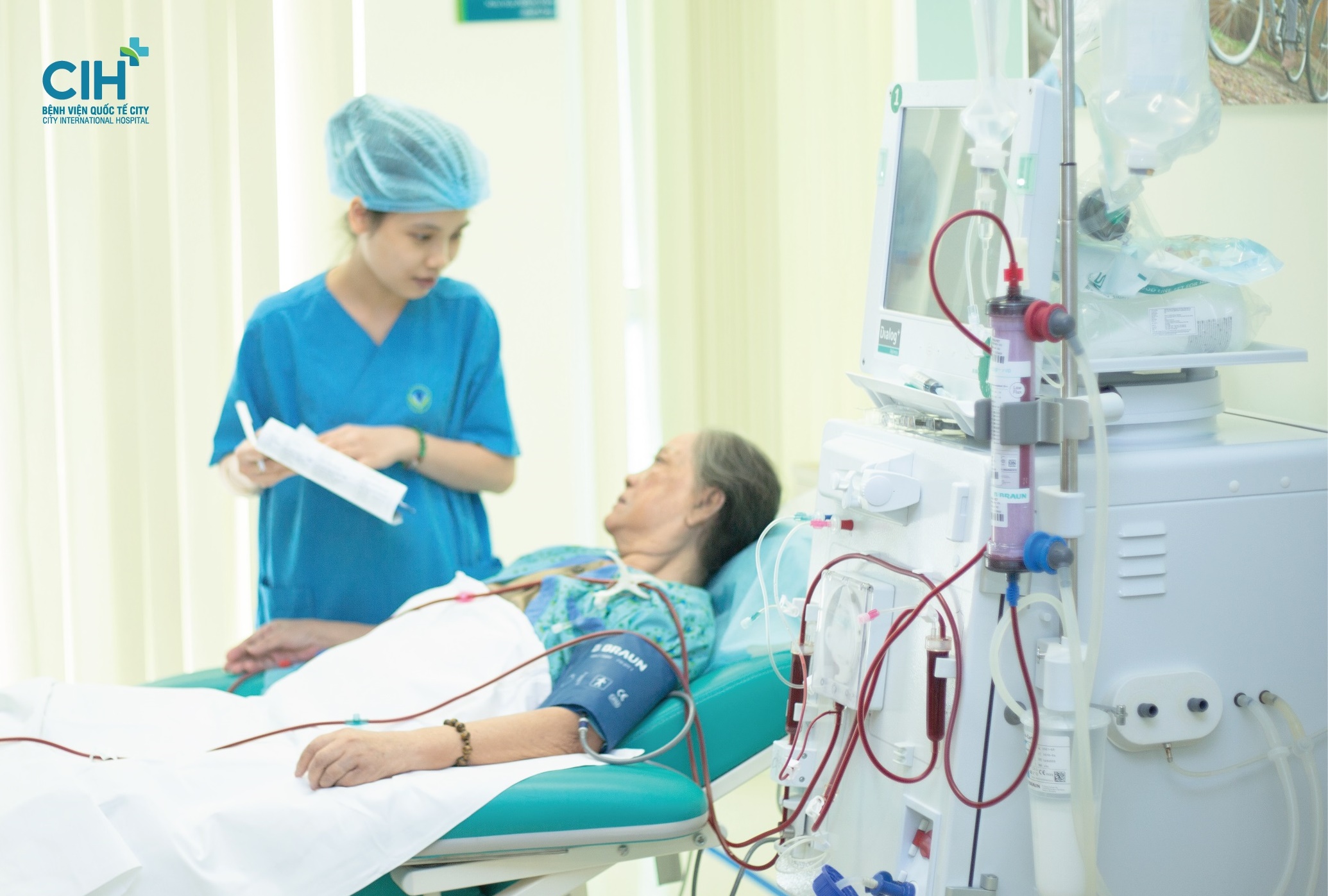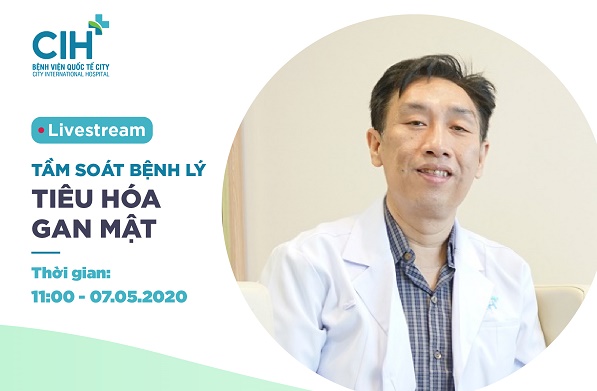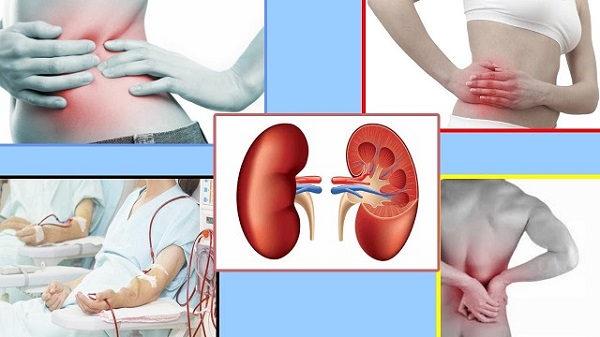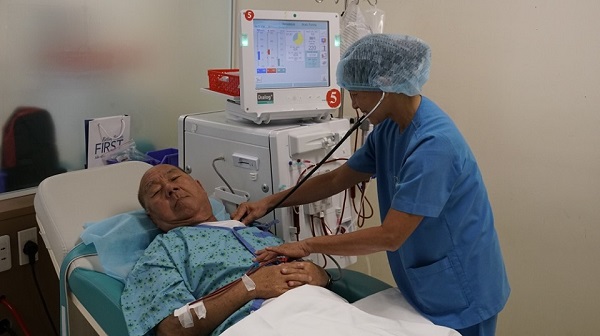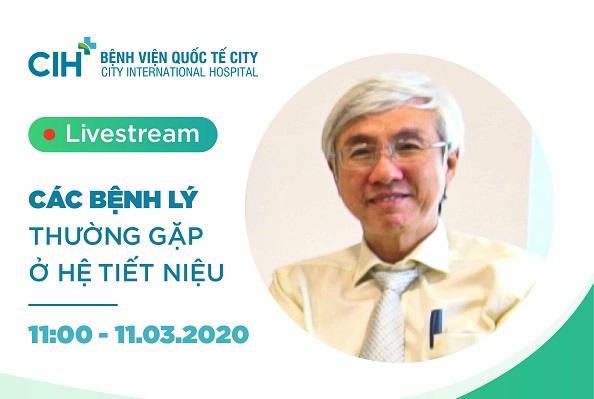B.Braun Hemodialysis center at City International Hospital is a partner with B.Braun Avitum - one of the first non-body dialysis service provider in the world with many experiences Experiments in establishing artificial kidney centers provide optimal treatment quality for patients.
What is hemodialysis?
During dialysis, an artificial kidney (hemodialyzer) is used to remove waste products, toxins left behind and excess water in the blood. To prepare for dialysis, your doctor may need to perform a small surgical procedure to create a blood vessel (usually on your arm or leg) by performing a subcutaneous connection between an artery and a vein called a fistula (FAV).
However, if your blood vessels are not enough to make a fistula, your doctor will use a flexible plastic tube to connect the artery and veins under the skin. This method is called graft. Sometimes, the doctor will temporarily create a pathway with a number of narrow plastic tubes called catheters, which are attached to a large vein in the neck or inguinal vein. Typically, you will perform dialysis 3 times a week, each takes about 4 hours depending on the location and individual conditions of each person as directed by the physician.
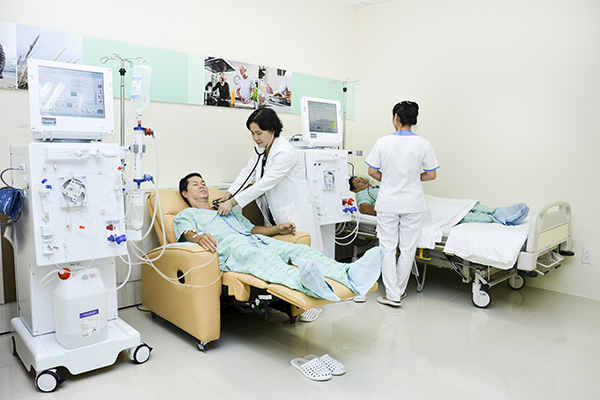
Preparing for dialysis
Make sure you are fully immunized: Consult your doctor about vaccines for influenza, hepatitis A and B, pneumococcal vaccines to prevent pneumonia. Get enough sleep at night: Make sure you get eight hours of sleep a day to support the body's process of getting rid of toxins.
Stop smoking: Tobacco increases the number of white blood cells, making your body tired by fighting infections and the effects of chemicals, which means that you are more likely to get sick leading to disorders immune system. If you smoke, talk to your doctor about how to quit. Wash your hands often: Wash your hands after handling other people or the sick. This helps you avoid the risk of infection or infection.
Control your blood pressure through therapy, diet and exercise: High blood pressure reduces the amount of oxygen transported to the kidneys and other organs. Despite kidney failure, high blood pressure affects vision and causes heart disease.
During dialysis treatment
During dialysis, the nurse will place two needles into the blood vessels to create a circulating loop outside the body. Thus, when taking blood out of the body, blood is taken to the dialyzer- purifies toxins and is returned to your body. This cycle is repeated throughout the dialysis period.
During dialysis, you can read, watch TV or sleep. Nurses will regularly monitor your health status. They will check the filter to see if it works properly. The alarm will ring if your blood pressure, pulse changes too much or there are other abnormal changes. Don't be alarmed to hear the alarm bell, the nurse will quickly solve the problem, turn off the bell and continue the dialysis process.
Side effects
The dialysis process is painless, but you may experience some of the following symptoms:
- Nausea and vomiting
- Headache
- Cramps
- Fatigue, insomnia
- Itching
- Lowering blood pressure
- Concerned.
Most side effects will go away after a few treatments. However, talk to your nurse or counselor if you have the above symptoms.
Post-dialysis treatment
After the dialysis treatment is finished, the nurse will remove the needle from your arm and tape the injection site tightly. You have to wear a tape for a few hours, maybe you need a little rest until you feel completely settled to go home.
Can I travel while on dialysis?
Usually, after a few months you will get used to the dialysis process. If you are concerned about treatment affecting your personal life, this is quite normal. With the recovery, advice and support from your family, you can overcome the difficulties you are facing and gradually adjust to the dialysis process. With good treatment, you can still live and work normally like everyone else and can travel with the condition that you only need to maintain dialysis.
Introducing B.Braun-CIH Hemodialysis center
Dialysis center B.Braun- CIH at City International Hospital is a partner with B.Braun Avitum - one of the first non-body dialysis service provider in the world with Extensive experience in establishing artificial renal centers providing optimal treatment quality to patients.
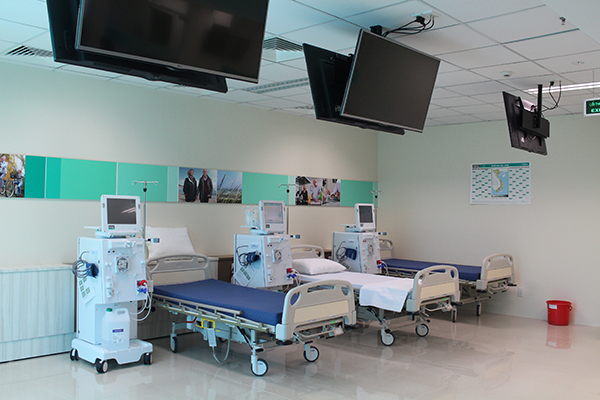
Highlights:
- Located inside City International Hospital building.
- Modern equipment provided by BBraun- Germany.
- Private entrance, convenient for patients.
- Experienced team of doctors and skilled nurses in the treatment and care of dialysis patients.
For more information regarding dialysis, please contact us:
- Operator: (8428) 6280 3333, ext. 0
- Address: No. 3, 17A Street, Binh Tri Dong B Ward, Binh Tan Dist. (Next to AEON Mall Binh Tan). Ho Chi Minh City.
- Website: https://cih.com.vn/en/
- Email: This email address is being protected from spambots. You need JavaScript enabled to view it.
- FB page: https://www.facebook.com/BenhVienQuocTeCity











